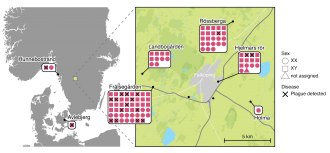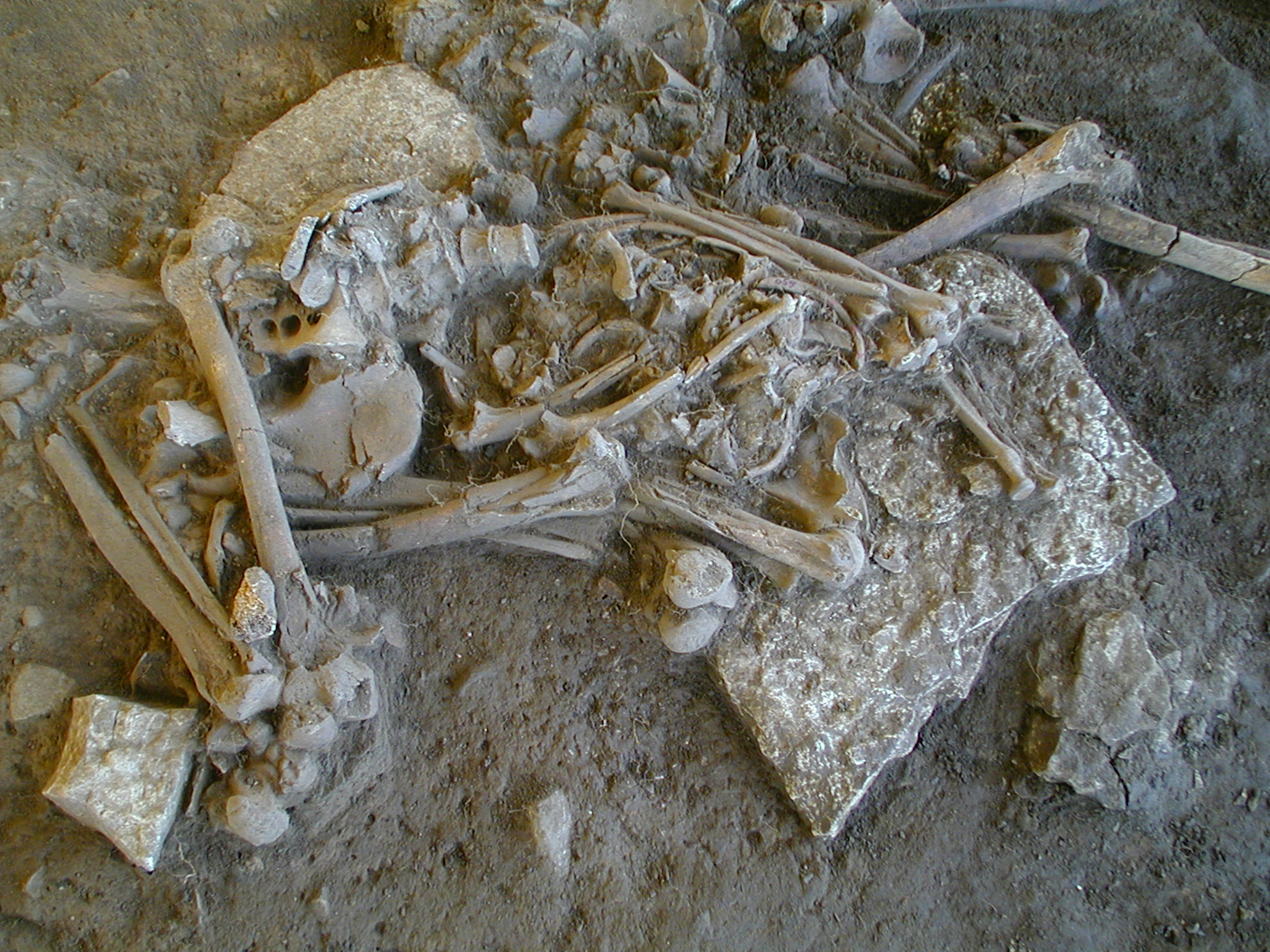News release
From:
Ancient genomics: Neolithic farmers hit hard by the plague *IMAGES*
Repeated outbreaks of plague may have contributed to the decline in Neolithic populations in Scandinavia, a Nature paper suggests. The analysis of ancient DNA from more than 100 individuals sheds light on the fate of these farmers, as well as offering a snapshot into their intimate family life.
Between 5,300 and 4,900 calibrated years before present (cal. bp), Neolithic populations in many parts of Europe collapsed. This is known as the Neolithic decline. Various explanations have been proposed, including the plague, but it is not known whether early outbreaks could cause wide-spread epidemics or just smaller, isolated events.
Frederik Valeur Seersholm, Martin Sikora and colleagues analysed ancient DNA from 108 Scandinavian Neolithic individuals, spanning six generations, from eight megalithic graves and one stone cist from Sweden and Denmark, respectively. The plague-carrying bacterium Yersinia pestis was widespread, found in at least 17% of all individuals sequenced. The analysis suggests that the plague spread through the community in at least three distinct waves, over a period of around 120 years. The first two waves were small and contained, but the third was more widespread. The early plague strains also contained virulence factors, never seen in Yersinia pestis before, which could potentially be lethal. Taken together, the evidence suggests that this early version of the plague had the potential to trigger widespread epidemics and suggests that recurring epidemics may have played an important part in the Neolithic decline.
In addition, the study provides an insight into Neolithic family life in Scandinavia. Four males with multiple reproductive partners were identified, but there were no instances of females with multiple partners. This suggests that social structure was patrilineal. One female was also found buried in a different tomb to her two brothers, suggesting that females sometimes moved to neighbouring groups to establish their families.
Multimedia








 Australia; International; WA
Australia; International; WA


